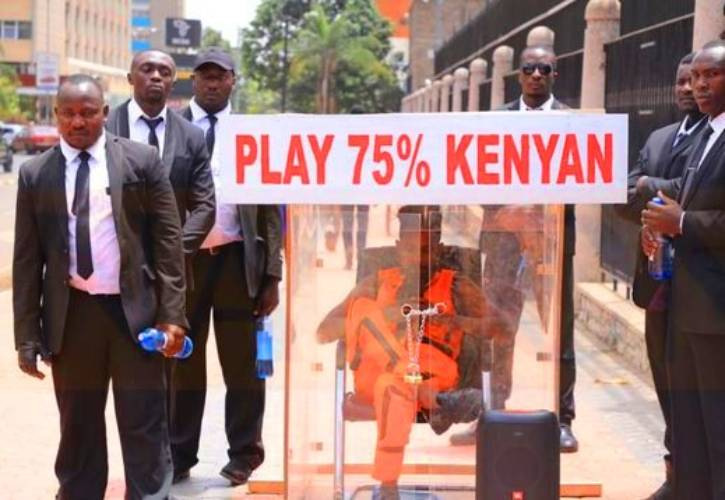How Bongo, Naija & Amapiano ‘Invaded’ Kenya’s Music Industry
3 March 2022

[Image Source: The Standard Media]
By Brian Sikulu
Get Free Music Updates and Mixes on Telegram
The campaign to have media outlets play more of Kenyan music than foreign has attracted attention for several months. This development stemmed from the fact that foreign genres such as Bongo, Amapiano, and Naija music had dominated the Kenyan market. Some of the stakeholders in the industry argue that this domination undermined the production of local music.
Download Ethic Music for Free on Mdundo
Pre-Invasion Period
In the early 2000s, the Kenyan music scene was one of the most active in the continent under the identity genre of Genge. At the time, foreign music had limited space in the Kenyan market as Kenyans supported their own. Artists such as Nonini, Jua Cali, Sanaipei Tande, Pili Pili, Nameless, E-sir, Necessary Noize were the creme de la creme in Kenyan showbiz. Kenyan music enjoyed wide local airplay leading to the success of some of the biggest hit songs, for example, 'Unbwoggable' by Gidi Gidi and Maji Maji.
Read Also: Genge to Gengetone: The Long Search for Kenya's Music Identity
Entry of Bongo into the Kenyan market
Unlike other countries such as Tanzania which is identified for Bongo, there was a period in the mid-2000s when Kenya never had a stable music identity. As a result, this made her an open market to other genres. Although Genge had earned itself as the identity of Kenyan music and for a long time ruled the airwaves, it weakened with time and created cracks. It is through these cracks that Bongo started leaking into the Kenyan market. Bongo is not only one of the oldest genres in African music but also one of the strongest. This might have been a contributing factor to its rapid settlement in the Kenyan market. Veteran Tanzanian artists such as Alikiba, Diamond, TMK Family, AY, Lady Jaydee, Marlaw, Professor Jay, T.I.D, Matonya, and many others started enjoying wide airplay. Tanzanian hit songs such as 'Bembeleza', 'Dar Mpaka Moro', 'Vaileti', 'Anita', 'Nyota Yako' and 'Kamwambie' among others won over the hearts of Kenyans.
Entry of Naija music into the Kenyan market
Hungry for change and a new taste of music, Kenyans switched gears to Naija music. Celebrated Nigeria musicians such as Davido, Wizkid, D Banj, Bracket, P-Square, Iyanya, and many others started getting a warm reception in Kenya. Songs from Nigerian artists slowly took over the Kenyan market, for example, 'Yori Yori' by Bracket, 'Carol' by Wizkid and 'Skelewu' by Davido among others.
Entry of Amapiano into the Kenyan market
With Bongo and Naija music having settled in the Kenyan music scene, one would have thought the invasion was over, but it was far from it. The South African genre of Amapiano also had its own share in the invasion, although the intensity was not as much as that of the other genres. A number of South African musicians including Sho Madjozi, Mafikizolo, Cassper Nyovest among others enjoy a good fan base in the country.
Foreign Artists Flooding Kenya For Music Events
Having established a loyal fanbase in Kenya, foreign artists started flooding the country for performances. This is the most recent invasion that sparked outrage among stakeholders in the Kenyan music industry. Tanzanian artists including Alikiba, Harmonize, Rayvanny and others have successfully held shows in the country. Their Nigerian counterparts including Adenkule Gold, Omah Lay, Joeboy, and many others were also not left behind. This invasion fueled the campaign to have media outlets directed by the government to play 75% of Kenyan songs in a bid to strengthen the Kenyan music industry and protect local musicians.
Whereas some view it as a curse, others believe the invasion is a blessing in disguise. Those who do not support the invasion argue that it undermines local talent and creates an environment that is not conducive for upcoming artists to thrive. The invasion could also be a blessing to the industry. The fact that so many musicians find Kenya a friendly place to be, gives an opportunity for events and other music activities. As more artists continue to flood Kenya, music lovers will be attracted to the country providing room for investment.






Leave your comment